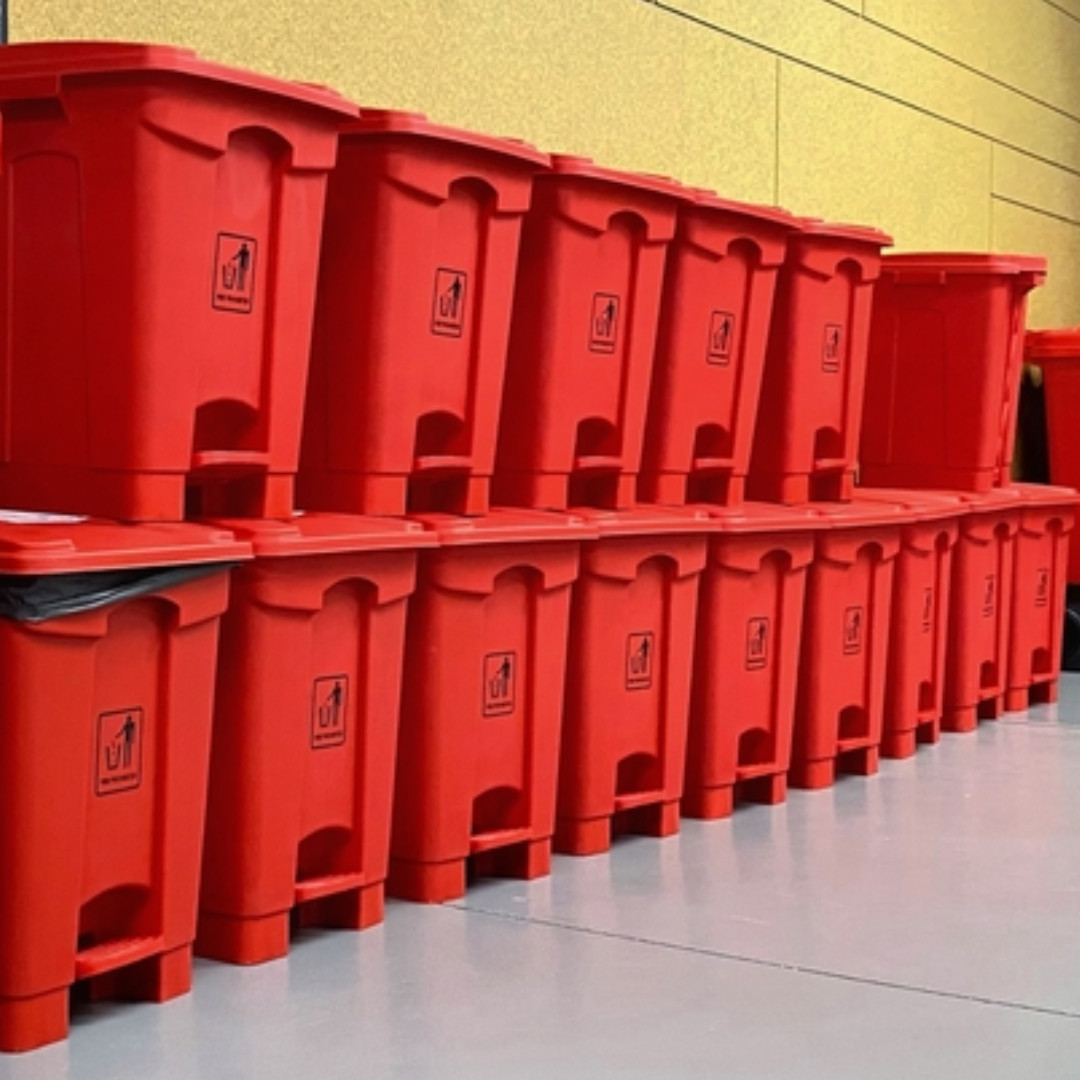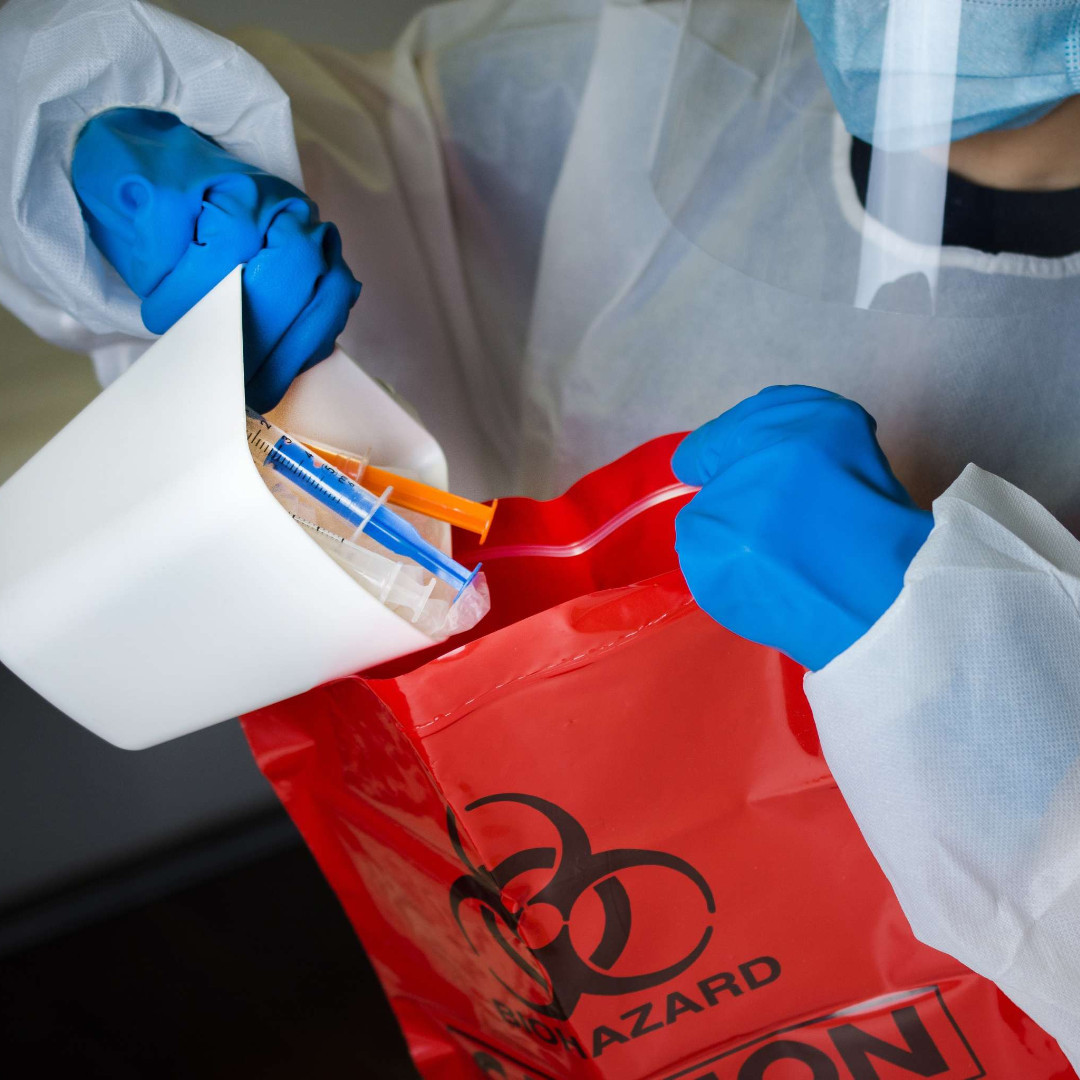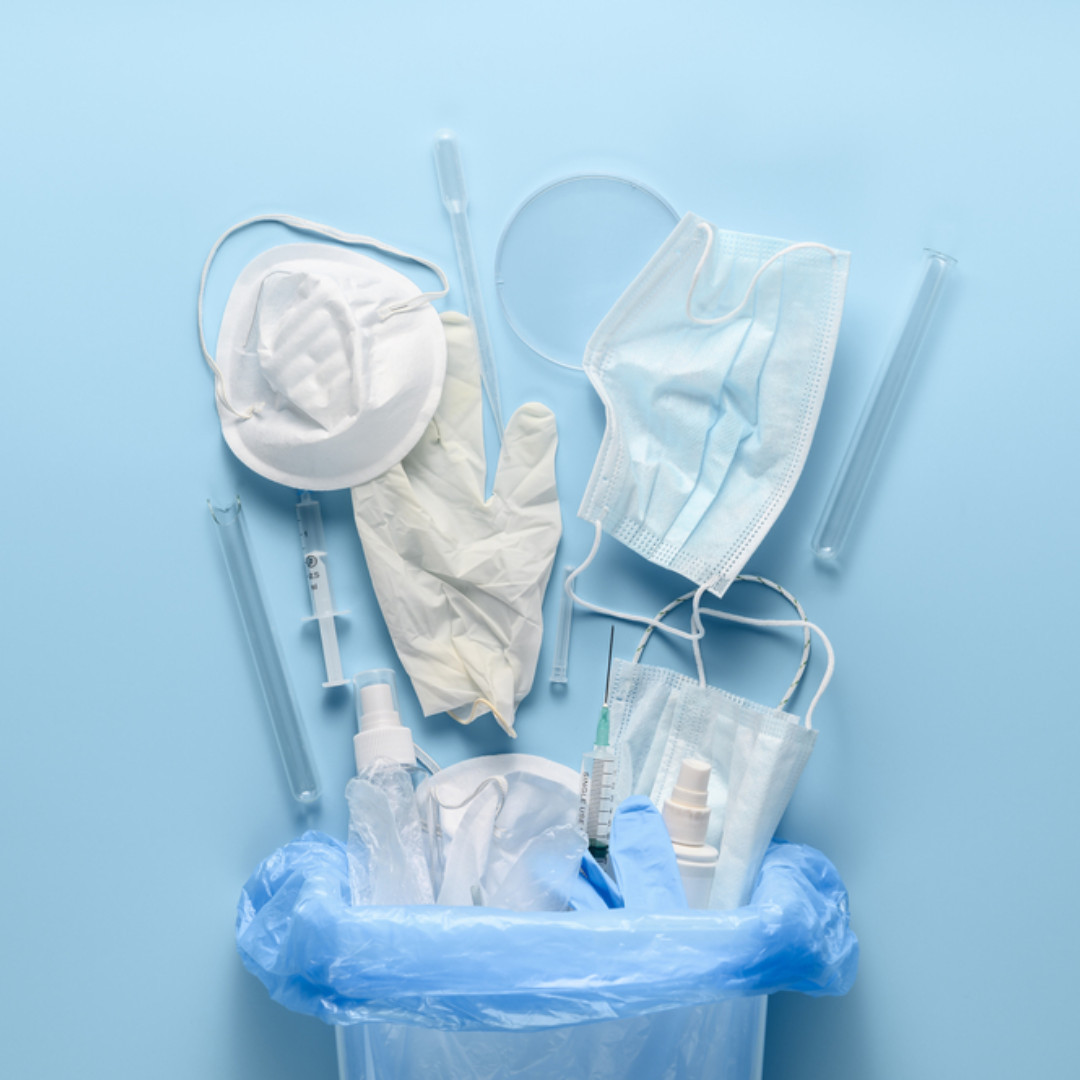Can you throw your at-home, rapid COVID-19 test in the trash, or is it considered hazardous biological waste?
Unlike at hospitals, at-home tests can be thrown in the normal trash, the Centers for Disease Control and Prevention told the Miami Herald in January. However, some states have taken different stances.
In Delaware, schools should treat the kits as infectious waste, according to the Delaware Department of Natural Resources and Environmental Control. Schools have been directed to place used test materials in red bags, mark the bags with the biohazard symbol and tie them closed. The bags must be stored away from people and be protected from the weather, rodents and insects. The state must then remove the bags, and schools must keep a copy of the manifests for at least three years.
As for South Carolina, the Department of Health and Environmental Control said that residents should follow the instructions on the at-home tests they use.
“We’re not aware of any stipulations preventing an individual organization, business, school, or provider from developing their own disposal policies, but we encourage them to follow practical safety and health protocols when doing so,” the agency said.
Lucira at-home COVID-19 test kits include a plastic bag for the test to be placed in and disposed of in the trash. Instructions for the QuickVue, BinaxNOW and IHealth at-home tests also say the used tests can be placed in the trash.
In California, disposal of BinaxNow test cards depends on whether or not the result was positive. For negative results, the test cards can go in the trash, while positive tests – along with used swabs and other test components – must be disposed of in a biohazard container according to regulated medical waste guidelines.
The CDC says tests from labs and testing sites should be treated as biohazardous waste. Rules on how to dispose of the waste vary by state, contact your local health department or COVID task force with any questions.
This post, Can your at-home COVID-19 test go in the trash?, was shared by KTLA on February 3, 2022.











